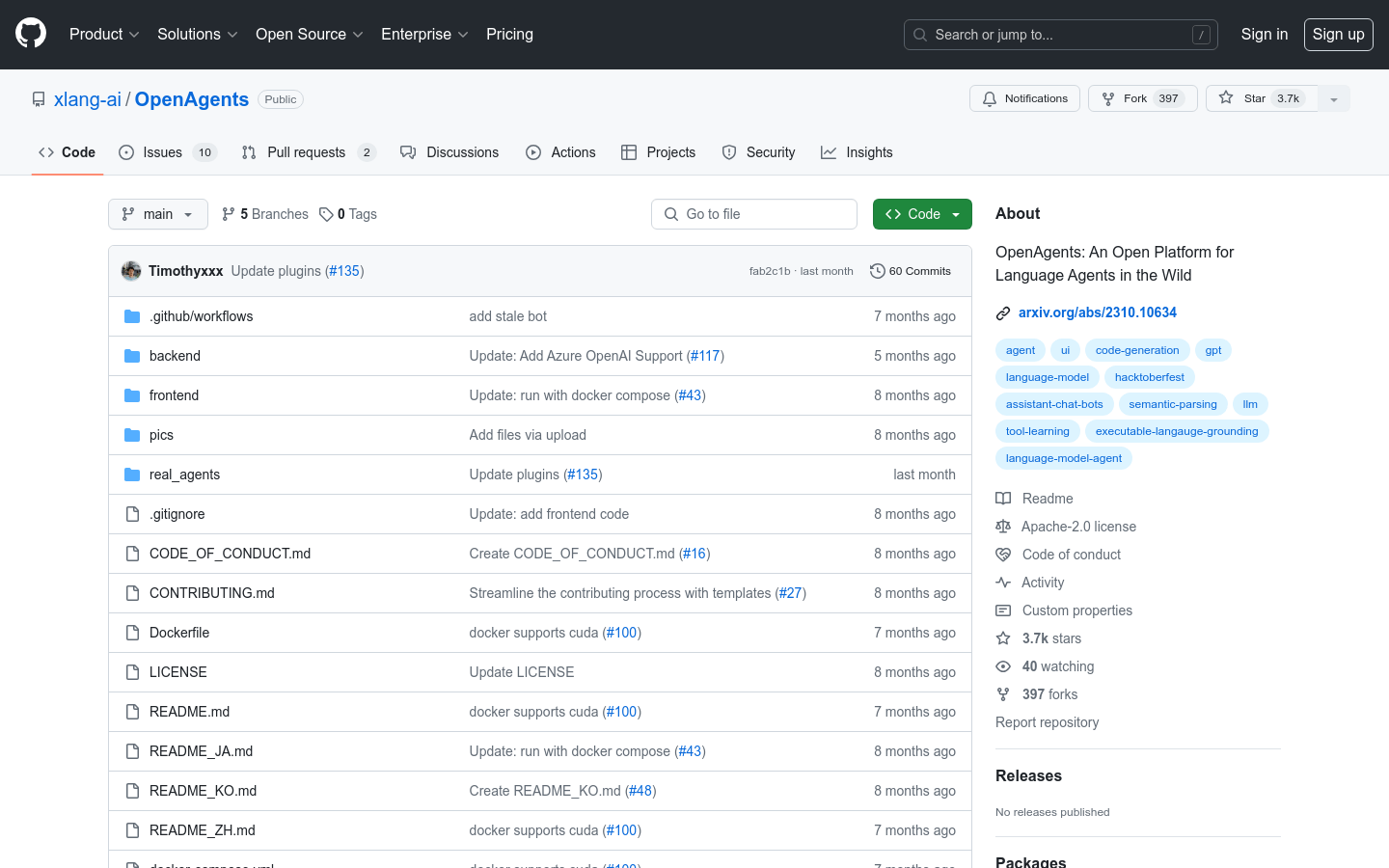

Openagents
Overview :
OpenAgents is an open platform designed to enable users and developers to utilize and host language agents in their daily lives. The platform currently features three agents: a Data Agent for data analysis, processing, modification, and visualization; a Plugins Agent that integrates with 200+ everyday tools; and a Web Agent for automatic web browsing. OpenAgents empowers ordinary users to interact with agent functionalities through its optimized Web UI, while simultaneously providing developers and researchers with seamless local deployment experiences, laying the groundwork for innovative language agent construction and real-world evaluation.
Target Users :
Targets developers, researchers, and everyday users interested in the applications of language agents. It is suitable for them because it provides an easy-to-use interface and robust backend support, enabling even non-experts to readily interact with and deploy agents.
Use Cases
Use the Data Agent for data analysis and visualization.
Leverage the Plugins Agent to integrate multiple plugins for trip planning.
Utilize the Web Agent to automatically fill out Google forms or post to Twitter.
Features
Data Agent: Provides a comprehensive toolkit for data searching, processing, modification, and visualization.
Plugins Agent: Integrates with 200+ third-party plugins, enriching various aspects of daily life.
Web Agent: Utilizes Chrome extensions to automate website navigation and exploration, simplifying web browsing.
Easy Deployment: Offers full-stack code, facilitating rapid local deployment.
Chat Web UI: An optimized web user interface for quick responses and common issue handling.
Agent methods: Provides a set of agent methods, enabling developers and researchers to extend and evaluate agents.
How to Use
1. Visit the OpenAgents GitHub page and familiarize yourself with the project overview.
2. Based on the guidelines in the README.md file, select a deployment method: deployment from source code or using Docker.
3. If opting for source code deployment, configure the local environment according to the backend and frontend README.md files.
4. If using Docker deployment, follow the project's instructions to run docker-compose and start the services.
5. Upon successful deployment, interact with the agents through the Web UI to explore different agent functionalities.
6. As needed, refer to the documentation and tutorials to extend new agents or integrate new tools.
Featured AI Tools

Openui
Building UI components is often tedious work. OpenUI aims to make this process fun, quick, and flexible. This is the tool we use at W&B to test and prototype the next generation of tools, built on top of LLMs to create powerful applications. You can describe your UI with imagination, and then see the rendering effect in real time. You can request changes, and convert HTML to React, Svelte, Web Components, and more. Think of it as an open-source and less polished version of a V0.
AI Development Assistant
757.9K

Opendevin
OpenDevin is an open-source project aiming to replicate, enhance, and innovate Devin—an autonomous AI software engineer capable of executing complex engineering tasks and actively collaborating with users on software development projects. Through the power of the open-source community, the project explores and expands Devin's capabilities, identifies its strengths and areas for improvement, thus guiding the advancement of open-source code models.
AI Development Assistant
595.1K















